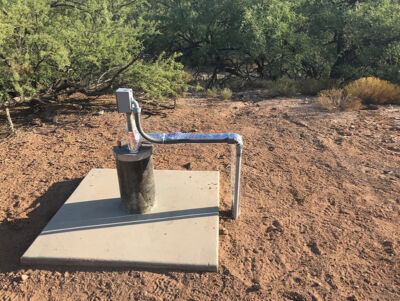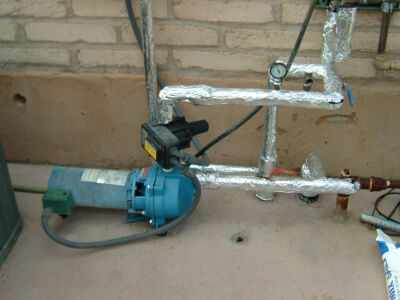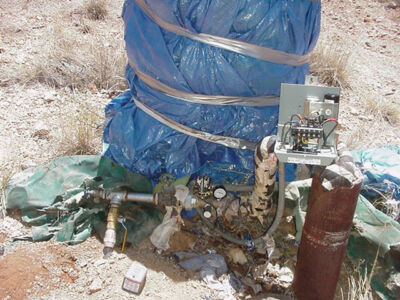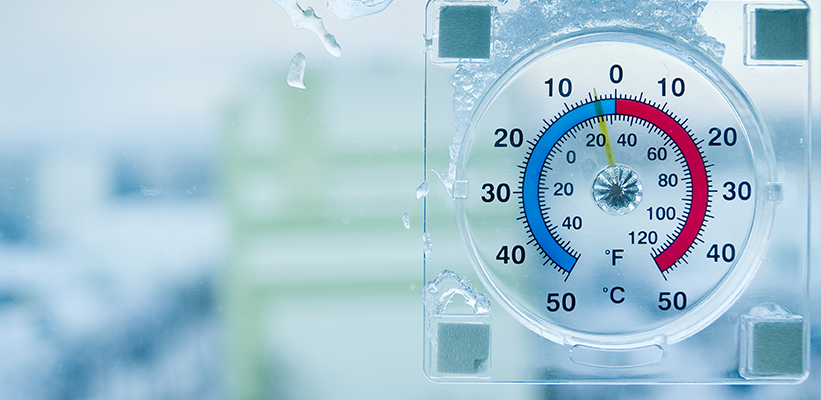By: Gary L. Hix, R.G., CWD/PI
Winterizing a domestic water well means different things in different states. Private well owners in Fairbanks, Alaska, will have pitless adapter well completions with the water outlet pipe set at a depth of nine feet or greater to protect it from freezing. Our wells have above ground completions with exposed pipe coming out of the top of well seals mostly without insulation around that plumbing.
When extreme cold weather comes to the Southern states it can impact the operation of private water systems. It can cause water well control systems and booster pumps on shared wells to freeze, bursting pipes and cast-iron chambers. Another weak zone inherent in southern states is the above ground use of PVC plumbing components. These are especially vulnerable to hard freezes.
Here are some tips for well owners in mostly southern states to prepare their water well systems for extreme cold weather events.
- Make sure all vital above ground components are protected with some form of insulating material. The well head and casing may not need to be insulated but all the plumbing that comes from the well to either storage or bladder tanks should be wrapped with material and/or electrical heat generating strips.

Well plumbing insulated
2. Especially vulnerable are the smaller diameter pipe sizes like the one that leads from the manifold to the pressure switch. Pressure gauges are very vulnerable to freezing and can be destroyed in just one night of below freezing temperatures.

Above ground well insulation
3. Large water storage tanks and even captive air bladder tanks themselves may not need to be insulated but the plumbing entering and exiting them must be. The smaller the diameter of the pipe and the lower to the ground, the more likely it is to freeze.
4. Private and shared water systems associated with storage tanks often have booster pumps drawing from them feeding to bladder tanks. These cast-iron booster pumps are very susceptible to breakage if they hard freeze. Ice expands upon freezing and breaks cast-iron booster pump housings.

Booster pump insulation
5. Any exposed PVC plumbing is also very vulnerable to breakage from even the slightest freezing temperature. PVC may be plastic at elevated temperatures but it is quite brittle at cold temperatures.
6. Homeowners are always encouraged to visually inspect their private water system on a regular basis. They are not intended to be left alone in the way that hot water heaters are typically ignored (until they fail).
7. Visual inspections should include inclement weather protection for vital water system components. In the desert southwest we must protect our systems more from heat and direct sunlight with only occasional protection from deep freezes.
8. Good thermal insulation can protect from both extremes.
9. My preferred thermal protection from both heat and cold is to wrap all vital plumbing components with the insulating foam split tubing and then wrap the foam with the aluminum tape that protects the vulnerable foam from rodents and ultraviolet destruction.
10. All water carrying components need insulation protection from hard freezes, however most electrical components do not. I do not recommend covering electrical control components with foam insulation or draping them with insulating blankets.
11. Some well owners who have left their freeze protection go to the last night before the hard freeze warning comes of the news will go out and throw a number of blankets, towels or tarps over the well, bladder tank and other components to protect it for a few nights. If they don’t remove these coverings shortly after the freeze warning is over these coverings become attractive homes for rodents, insects and reptiles. It’s quite a surprise when these coverings are removed in the late spring finding mice, kangaroo rats, scorpions, toads and even rattlesnakes hiding under them.

For more winter tips and helpful information, check out this recent related article:
Keep your well safe and operating through winter weather
 About the Author
About the Author
Gary Hix is a Registered Professional Geologist in Arizona, specializing in hydrogeology. He was the 2019 William A. McEllhiney Distinguished Lecturer for The Groundwater Foundation. He is a former licensed water well drilling contractor and remains actively involved in the National Ground Water Association and Arizona Water Well Association.
To learn more about Gary’s work, go to In2Wells.com. His eBooks, “Domestic Water Wells in Arizona: A Guide for Realtors and Mortgage Lenders” and “Shared Water Wells in Arizona,” are available on Amazon.



